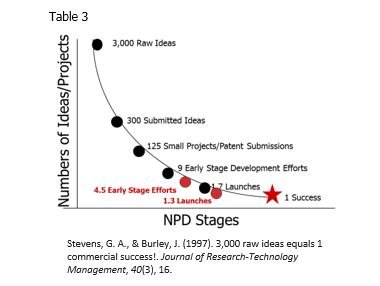Upgrade, Boost, & Lengthen Your Life With Creativity
What is creativity?
Robert E. Franken offers a great definition of creativity in his book Human Motivation (3rd ed.) and why reinvent the wheel?… “Creativity is defined as the tendency to generate or recognize ideas, alternatives, or possibilities that may be useful in solving problems, communicating with others, and entertaining ourselves and others.”
Every one of us is creative
Often the word “creative” brings up images of artists, musicians, dancers, actors, or mad-scientist inventors; but we are all creative. Creativity allows you to find the best solution to a problem, think of new ways to improve a process, or discover ways to communicate your ideas to others—these are things that all of us do on a constant basis throughout our lives, and they are all things we can get better at. So, don’t fret if you aren’t “artistic,” you are still creative.
Some potentially lesser-known benefits of creativity
Improve problem-solving
If you’re trying to solve a problem, you should seriously question “doing it as we’ve always done it.” In some cases, the problem has arisen because of the way we’ve always done things; in others, things have changed enough that the same old just won’t cut it anymore. By strengthening your creative muscles, you’ll become better at thinking up new ideas and viewing situations from different angles, and that’s when creativity and innovation are possible.
Increase productivity
Creative people have active minds that are full of ideas and are open to soaking up inspiration that’s all around them. And, more ideas are better.
In 2012 PDMA (Product Development and Management Association) did a Global Comparative Performance Assessment Study. It showed that it can take up to 3,000 initial, raw ideas to have one successful product. If your lack of creativity means you only come up with 10 or 100 or even 1,000 ideas, you can see what a disadvantage you’re at.
Boost confidence
When you use your creativity to overcome challenges and solve problems, you’re proving to yourself that you’re highly capable. Creativity may feel hard sometimes, but it’s worth the effort if you can come out on the other side making positive changes, getting things done, and improving your mood and outlook in the process.
Live longer
What? Yep, really. The Scientific American article, Creativity Predicts a Longer Life, summarizes the research that backs this up: “Researchers have long been studying the connection between health and the five major personality traits: agreeableness, extraversion, neuroticism, openness, and conscientiousness. A large body of research links neuroticism with poorer health and conscientiousness with superior health. Now openness, which measures cognitive flexibility and the willingness to entertain novel ideas, has emerged as a lifelong protective factor. The linchpin seems to be the creativity associated with the personality trait—creative thinking reduces stress and keeps the brain healthy.”
While we tend to value intelligence highly, it was found that creativity (not intelligence or overall openness) decreases mortality risk.
How do you become more creative?
Creativity means that you can perceive things in new ways or from a different perspective and then generate new possibilities or alternatives. In fact, creativity is measured by looking at the number of alternatives that people can generate and how different the alternatives are from each other. So, both quantity and quality.
The best way to broaden your mind to see and accept the unknown is to learn all you can from as many different sources and people as you can, listen for understanding, be observant, and never stop being curious.
Alan Rickman (British stage and screen actor famous for many roles including Harry Potter’s Severus Snape) gave some great advice to young actors, but it’s just as applicable to anyone wanting to be more creative, in whatever you do (it’s only 2:30 long… and worth every second).
The good news is that creativity, curiosity, and learning are not something that only artistic people are born with—they are something we are all born with. Hardwired in every human brain is the ability to form new neural connections and even new neurons, to literally grow and change the shape of our brains. Some regions of our brain remain as malleable in adulthood as they were when we were babies.
And, though creativity may seem an ambiguous thing to strive for, some fundamental qualities of thinking combine and can be strengthened to ultimately improve your creativity—being flexible, learning to be comfortable with ambiguity, and finding true joy in learning new things. We are naturally averse to change, uncomfortable with uncertainty, and fearful of the unknown. But, we can overcome all of that over time with some metacognition (understanding how we think and learn), commitment to change, and intentional practice.
You may have guessed where I’m going by now… participating in and facilitating VTS trains and strengthens your thinking in all of the ways that combine to improve “creativity.” This is the reason it’s been used in K-12 and higher education for decades.

